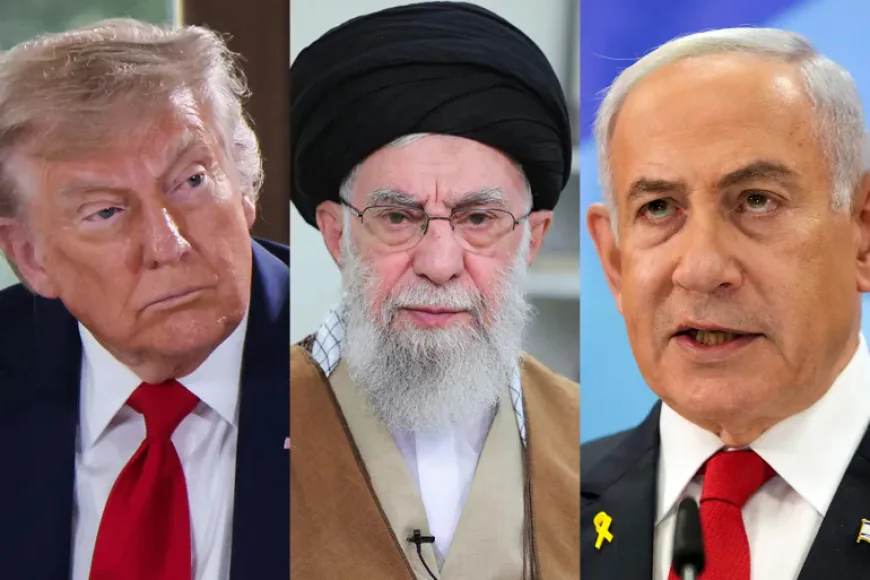Trump on Iran Strike: 'I May or May Not' Attack as Israel Conflict Escalates
President Donald Trump maintained deliberate ambiguity about possible U.S. military action against Iran, telling reporters Wednesday: "I may do it, I may not do it. Nobody knows what I'm going to do." The remarks came amid escalating tensions between Israel and Iran, with Trump suggesting "the next week is going to be very big" for Tehran's fate.

President Donald Trump kept global observers on edge with his trademark ambiguity Wednesday, refusing to reveal whether he would authorize U.S. military strikes against Iran. "I may do it, I may not do it. Nobody knows what I'm going to do," the president told reporters in his signature enigmatic style.
The remarks came as tensions between Israel and Iran reached a dangerous tipping point, with Trump signaling that "the next week is going to be very big" in determining Tehran’s fate.
Trump’s Ambiguous Threats and Iran’s Defiance
Speaking at the unveiling of new White House flagpoles; an event he prioritized amid the crisis—Trump alternated between threats and hints of diplomacy. A day after branding Supreme Leader Ayatollah Ali Khamenei an "easy target" and demanding Iran’s "unconditional surrender," Trump suggested Tehran now seeks negotiations but may have "waited too long."
"They want to come to the White House. I may do that," Trump said, before adding, "It’s very late to be talking... There’s a big difference between now and a week ago." Iran’s UN mission swiftly denied the claim, posting on X: "No Iranian official has ever asked to grovel at the gates of the White House."
Military Options on the Table
Trump confirmed he would hold a second high-stakes National Security Council (NSC) meeting within 48 hours to weigh U.S. involvement in Israel’s strikes. While he boasted that America possesses "bunker buster" bombs capable of destroying Iran’s Fordow nuclear facility, he cautioned, "That doesn’t mean I’m going to do it at all."
The president’s mixed messaging reflects internal pressures: his base’s isolationist wing opposes another Middle East war, while allies like Israel push for stronger action. Israeli Prime Minister Benjamin Netanyahu, whom Trump said he speaks to "every day," has urged continued offensives. Meanwhile, Trump dismissed an offer from Russian President Vladimir Putin to mediate, snapping: "Do me a favor, mediate your own [war in Ukraine] first."
Khamenei’s Warning and Global Fallout
Iran’s supreme leader remained defiant, rejecting Trump’s surrender demand and warning of "irreparable damage" if the U.S. intervenes. The threat comes as oil prices surge on fears of expanded conflict, and European leaders plead for de-escalation.
What’s Next?
With Trump deliberately keeping his plans opaque, analysts suggest several scenarios:
-
Limited U.S. strikes on nuclear sites if Iran refuses to back down
-
Backchannel talks to avert war, though Trump insists time is running out
-
Further Israeli escalation, potentially dragging America into direct conflict
"I like to make the final decision one second before it’s due," Trump quipped—leaving the world anxiously awaiting his next move.
Key Takeaways:
-
Trump’s "may or may not" stance keeps military action in play
-
Iran denies seeking talks, vows retaliation if attacked
-
Global markets and allies brace for potential crisis
-
Decision expected within days as NSC convenes
Source: France 24


